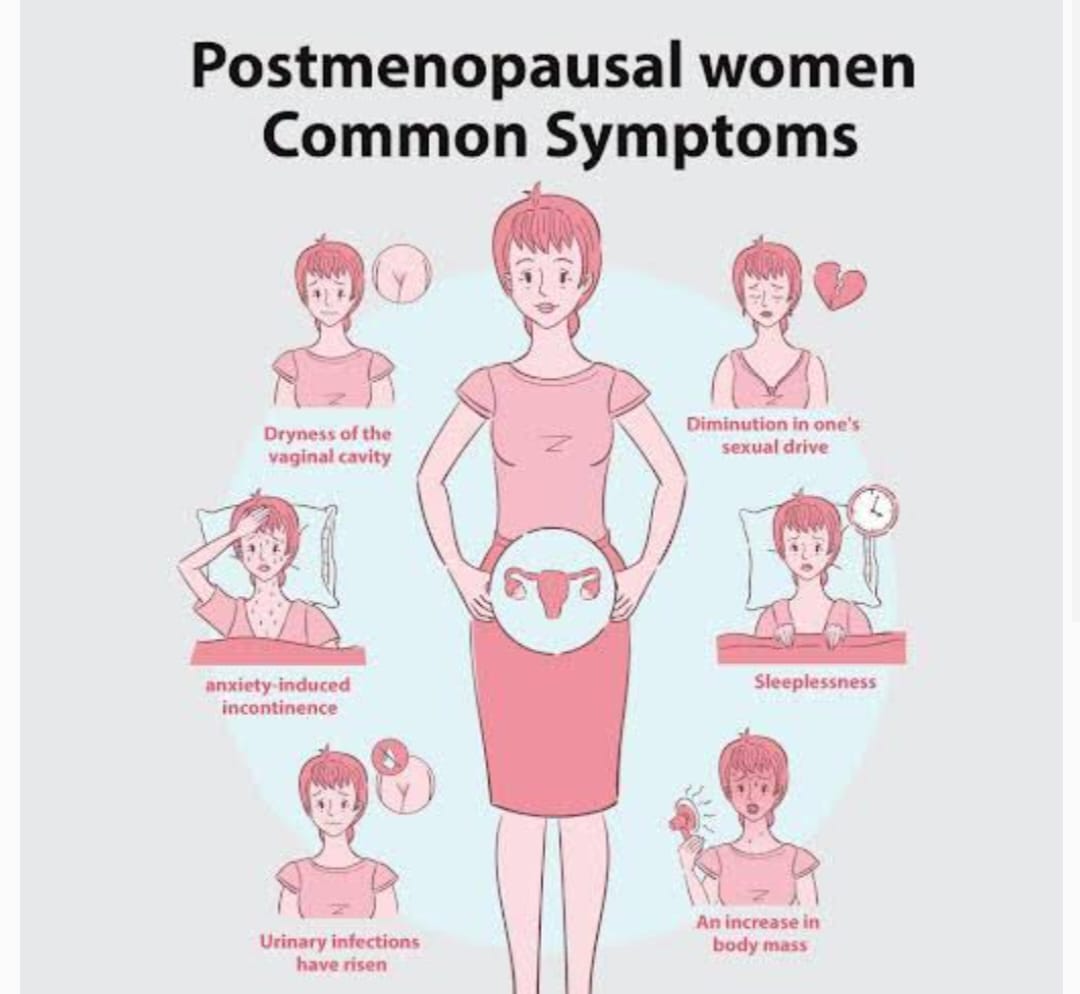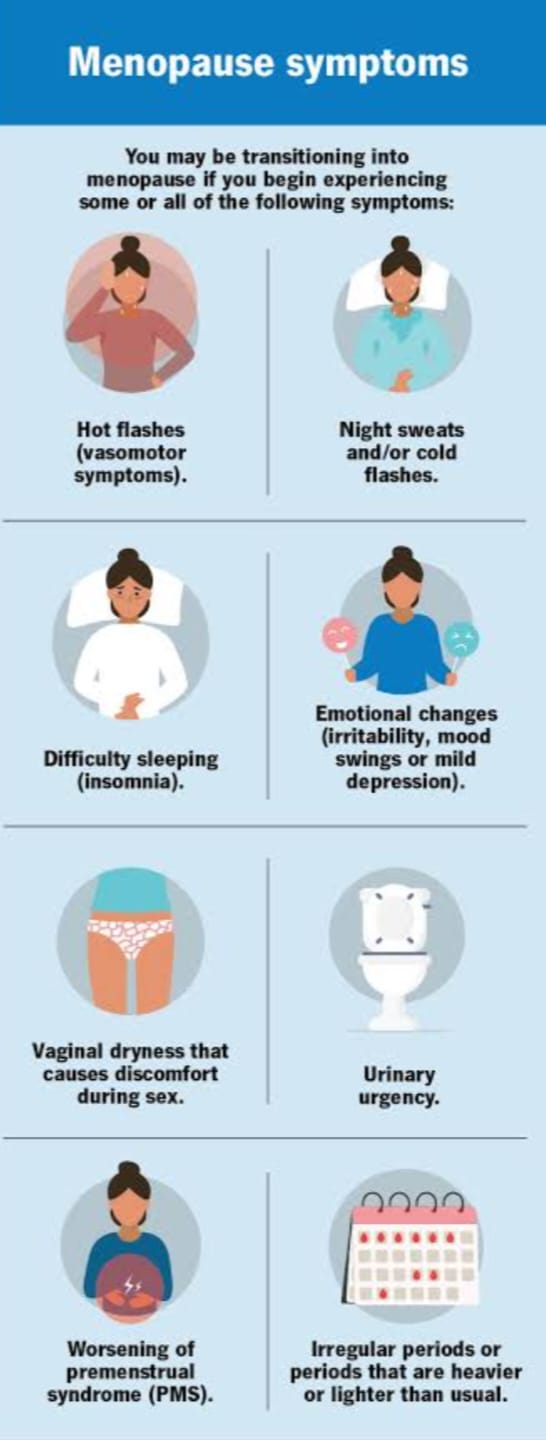Postmenopausal Syndrome
Menopause is the time when, as part of the natural ageing process, a woman’s periods become irregular and then stops. This ‘change of life’ generally occurs between the ages of 45 and 55 years, but can happen earlier or later than this for a variety of reasons. Medically, a woman is described as ‘postmenopausal’ when her periods have stopped completely for one year or more.
Symptoms of postmenopausal includes:-
Vascular instability
•Hot flashes or hot flushes, including night sweats and, in a few people, cold flashes
•Possible but contentious increased risk of atherosclerosis
•Migraine
•Rapid heartbeat
Urogenital atrophy, also known as vaginal atrophy
•Thinning of the membranes of the vulva, the vagina, the cervix, and also the outer urinary tract, along with considerable shrinking and loss in elasticity of all of the outer and inner genital areas.
•Itching
•Dryness
•Bleeding
•Watery discharge
•Urinary frequency
•Urinary frequency
•Urinary urgency
•Increased susceptibility to inflammation and infection Skeletal
•Back pain
•Joint pain, Muscle pain
•Osteopenia and the risk of osteoporosis gradually developing over time
Skin, soft tissue
•Breast atrophy
•breast tenderness +/- swelling
•Decreased elasticity of the skin
•Formication (itching, tingling, burning, pins and needles, or sensation of ants crawling on or under the skin)
•Skin thinning and becoming drier
Psychological
•Depression and/or anxiety
•Fatigue
•Irritability
•Memory loss, and problems with concentration
•Mood disturbance
•Sleep disturbances, poor quality sleep, light sleep, insomnia Sexual
•Painful intercourse
•Decreased libido
•Problems reaching orgasm
•Vaginal dryness and vaginal atrophy
Hormone replacement therapy (HRT) is a treatment in which estrogen, and often progestin, is taken to relieve the symptoms of low levels of female hormones.
Risks of HRT:-
HRT has been associated most frequently with the following medical problems:
1.Cancer of the uterus may be slightly increased. Using estrogen alone causes the lining of the uterus to grow and can increase the risk of endometrial cancer. To reduce this risk, your doctor may prescribe another hormone called progestin (a synthetic hormone that acts like progesterone). 2. Development of blood clots is slightly increased. When blood clots form in blood vessels, the blood clots can cut off blood flow to organs like the lung or brain and lead to severe damage of these organs.
3. Breast cancer may be increased. Some research studies suggest that the use of HRT may increase the risk of breast cancer. However, other research studies suggest there is not association. No definitive statements can be made about these issues.
4. HRT may have a slightly increased risk of forming gallstones.
5. The use of HRT is associated with the following GI symptoms : nausea (9-11% of women) diarrhea (6-8% of women) abdominal pain (5-6% of women)
Homeopathic Treatment
Homeopathy is the safest treatment before, during, and after menopause because it stimulates the natural hormonal balance without the use of harmful drugs. Constitutional homeopathic treatment is best during the transitional period of menopause in order to balance hormonal levels and cure the many accompanying symptoms. You cannot address the complex of these symptoms as separate from the whole individual; for this reason true classical homeopathic prescribing is highly recommended for the treatment of postmenopausal Syndrome.


